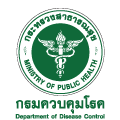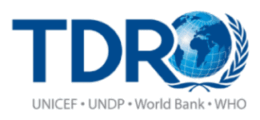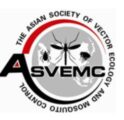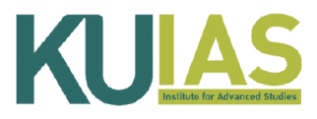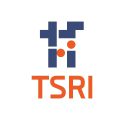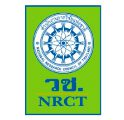The 2nd Asia-Pacific Conference on
Mosquito and Vector Control (AMV)-2026
Theme : Innovative Collaboration in AI and Technology to Advance Vector Control
Date : 5-7 August 2026
Venue : Grande Centre Point Space Pattaya City, Thailand
Start Registration : 15 July 2025
The 2nd Asia-Pacific Conference on
Mosquito and Vector Control (AMV)-2026
Theme : Innovative Collaboration in AI and Technology to Advance Vector Control
Date : 5-7 August 2026
Venue : Grande Centre Point Space Pattaya City, Thailand
Start Registration : 15 July 2025
the venue hotel for the 2nd Asia-Pacific Conference
on Mosquito and Vector Control (AMV-2026),
is offering a special discount to all conference participants.
Executive Director, Institut Pasteur du Japon, Japan
Topics Highlighted
| Title | Description |
|---|---|
| 1. Advancing Insecticide Resistance Detection and Control Efficacy in the Field | Explore cutting-edge tools, protocols, and collaborative frameworks designed to monitor and manage insecticide resistance across diverse ecological settings. |
| 2. Simian Malaria: Crossing Species, Crossing Borders | Zoonotic malaria is challenging national elimination goals. This symposium brings together leading scientists to address the transmission dynamics, diagnostics, and cross-border risks of simian malaria across Southeast Asia |
| 3. AI Models in Vector Surveillance: From Prediction to Precision | Artificial intelligence is reshaping how we detect, map, and respond to vector populations. This session showcases AI applications in mosquito species identification, age grading, infection status prediction, and resistance detection. |
| 4. Spatial Emanators for Aedes Control in Asia-Pacific | Innovative spatial repellent technologies are being trialed to protect communities from Aedes-borne diseases. Discover the latest evidence and operational experiences in deploying spatial emanators across the region. |
| 5. One Health Approach: Roles and Actions in Vector Control | Integrating human, animal, and environmental health is key to tackling vector-borne threats. This theme focuses on multi-sectoral coordination and surveillance through a One Health lens. |
| 6. Success Stories in Community Mobilization | What happens when communities take ownership of vector control? This session features real-world examples of participatory interventions that have improved public health outcomes and sustained behavioral change. |
01
Prof. Dr. Chow-Yang Lee is a highly distinguished and internationally recognized expert in the field of urban entomology and pest management. His expertise encompasses a broad range of areas, with a strong focus on the biological, ecological, and physiological adaptations of urban insect pests.
02
Prof. Dr. Sylvie Manguin is a highly distinguished and internationally recognized expert in medical entomology and vector-borne diseases. Her primary focus is on mosquitoes, particularly Anopheles species responsible for malaria, but also Aedes and Culex species involved in arboviral diseases like dengue and Japanese encephalitis.
03
Dr. Yunpeng Li is a Reader in AI & Digital Oral Health at King’s College London. While his primary affiliation and current role are focused on AI applications in dental and oral health, his broader research interests lie in machine learning tools for trustworthy and uncertainty-aware solutions for real-world applications, including biodiversity and environmental acoustic sensing.
04
Dr. Marianne Sinka is a prominent medical entomologist with significant expertise in mosquito vectors of human malaria. Her work focuses on understanding the environmental factors that influence the distribution and behavior of different mosquito species, particularly their relevance to disease transmission and how their abundance is affected by control measures.
05
Prof. Datin Dr. Indra Vythilingam is a highly experienced Medical Entomologist with over 30 years of research focused on vectors of medical importance. Her expertise in “simian malaria” is particularly strong and a primary focus of her current research.
06
Dr. Nicole L. Achee is a highly accomplished Medical Entomologist and Research Professor at the University of Notre Dame, with over 20 years of experience in vector behavior research related to the epidemiology and control of arthropod-borne diseases.
07
Dr. John Grieco is a leading expert in the development and evaluation of innovative vector control strategies, with a particular emphasis on novel chemical interventions like spatial repellents, and a strong background in the field ecology and transmission of major vector-borne diseases globally.
08
Dr. Gerard Duvallet is a renowned Professor Emeritus at the University Paul Valéry in Montpellier, France. A medical entomologist and ecologist, his career has established him as a leading authority on arthropods of medical and veterinary significance. Dr. Duvallet’s extensive research has made him a highly respected figure in the fields of medical entomology, parasitology, and vector-borne diseases.























- The deadline dates are in Thailand standard time.
- To register as a student, you must be a student at the time of registration.
- Payment Method: We accept credit card payments through the online payment gateway, 2C2P.
- Online payment will be available from July 15, 2025 to June 30, 2026
- Inquiries concerning online registration please contact [email protected]






Cancellation and Refund Policy: Non-refundable and Non-transferable



